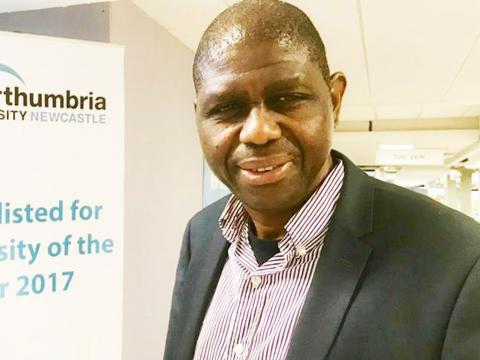By Mabinty M. Kamara
The chairman of the Right to Access Information Commission, Dr. Ibrahim Seaga Shaw has mentioned low budgetary allocation to the institution as part of the challenges affecting the efficiency of its work.
Dr. Shaw made this statement on Friday, 19th March 2021 while briefing journalists at the launch of the Commission’s 2019-2020 annual report in Freetown.
He said despite the challenge of low budgetary allocation leading to low staff capacity to do the commission’s work, some successes have been made by the organization since he took over.
He said the Commission’s key function in facilitating access to information as well as promoting proactive disclosure of information and maintaining records cannot be done by them alone without the support of the public including development partners, the media and civil society organizations.
Dr. Shaw said when he took over there was lack of organizational reporting, huge debts that include an outstanding year’s rent, the non-payment of dues to the National Social Insurance Trust, NASSIT and the National Revenue Authority (NRA), all of which prompted him to initiate the idea of an internal restructuring and the identification of partners to work with.
He said in restructuring, the Commission he invited the Public Sector Review Unit (PSRU) to carry out some management and functional review starting from 2014 when the commission was set up. “In their findings, the PSRU review team identified among other things, that the Commission was grossly understaffed to carry out its core functions and there was a lack of training opportunities since the establishment of the commission in 2014,” he said
The PSRU noted the lack of effective records management systems, improper file referencing and classification and lack of adequate ICT equipment in the Commission to perform its duties. “All these things are slowing down the work of the commission. It was a very big challenge; the recommendations are that the commission recruits more staff, and we have been working on that through some support we are getting now we are almost close to our target on procurement and employment policies, record files, and performance appraisal,” he said.
Dr. Shaw explained how they have had to work very hard within a very tight budget for the past years and thanked OSIWA for supporting them in many activities.
He spoke highly of the World Bank and Civil Society Organizations and other partners for their support in making the commission visible and viable.
The chairman noted that request and complaint provisions form a major component of the RAI Act. He said in it its effort to strengthen these provisions, the Commission processed 112 FOI, 60 requests of complaints, 14 of which were said to have been processed since October 2018, coming from individuals, corporate bodies, the media, civil society and academics, directed at government Ministries Department and Agencies, the private sector, local government, local and international NGOs.
The reported further noted that Western Area received 32 requests for information, 28 complaints, with 2 follow-up cases.
Total number of requests received by the Commission from the northern, southern, eastern and western regions amounted to 89 whilst complaints received amounted to 41. Follow-ups by the commission recorded 10 and request/complaint successes 112.
In his statement, the Executive Secretary of the Commission, Mustapha Braima said the annual report was part of the provisions in the constitutive Act guiding the work of the commission. He added that their team was willing and ready to move the work of the Commission from the way it used to be.
The report is said to be the first since the establishment of the commission in 2014 after Access to Information became a law in Sierra Leone in 2013.
Copyright © 2021 Politico Online (22/03/21)








